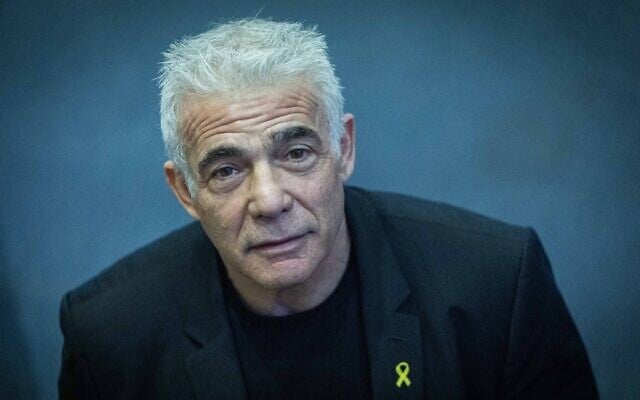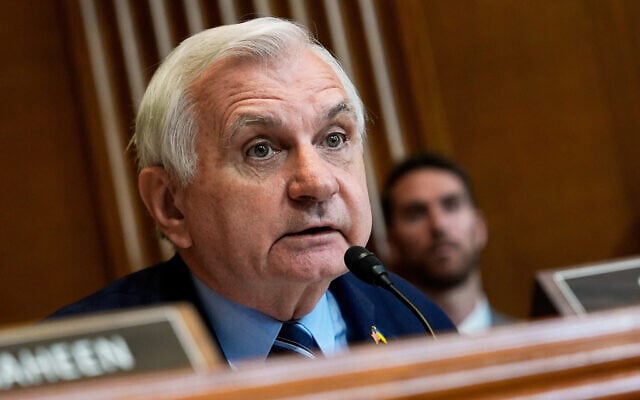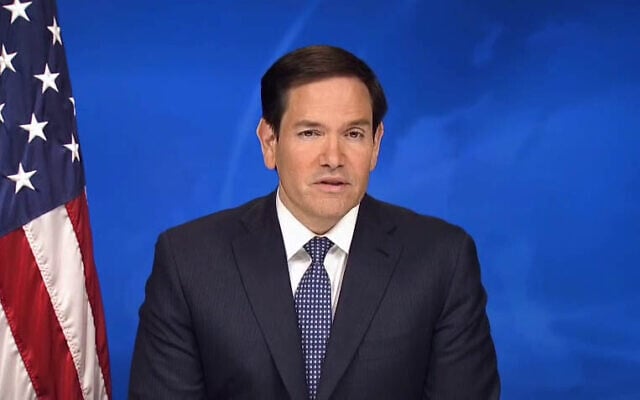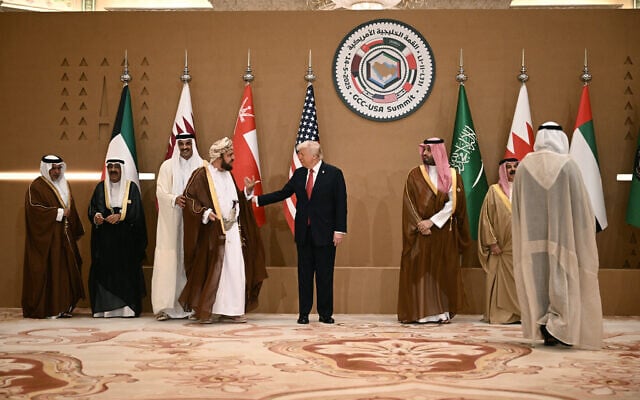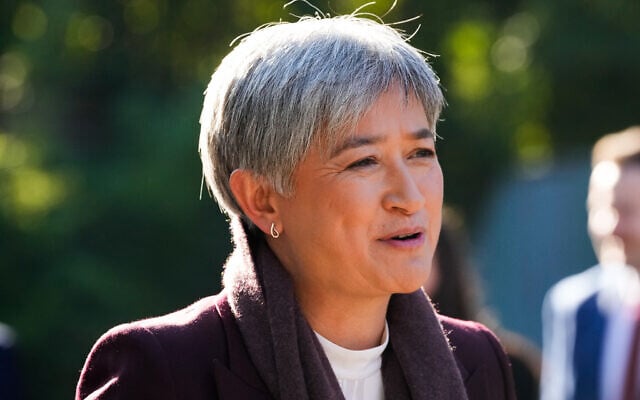


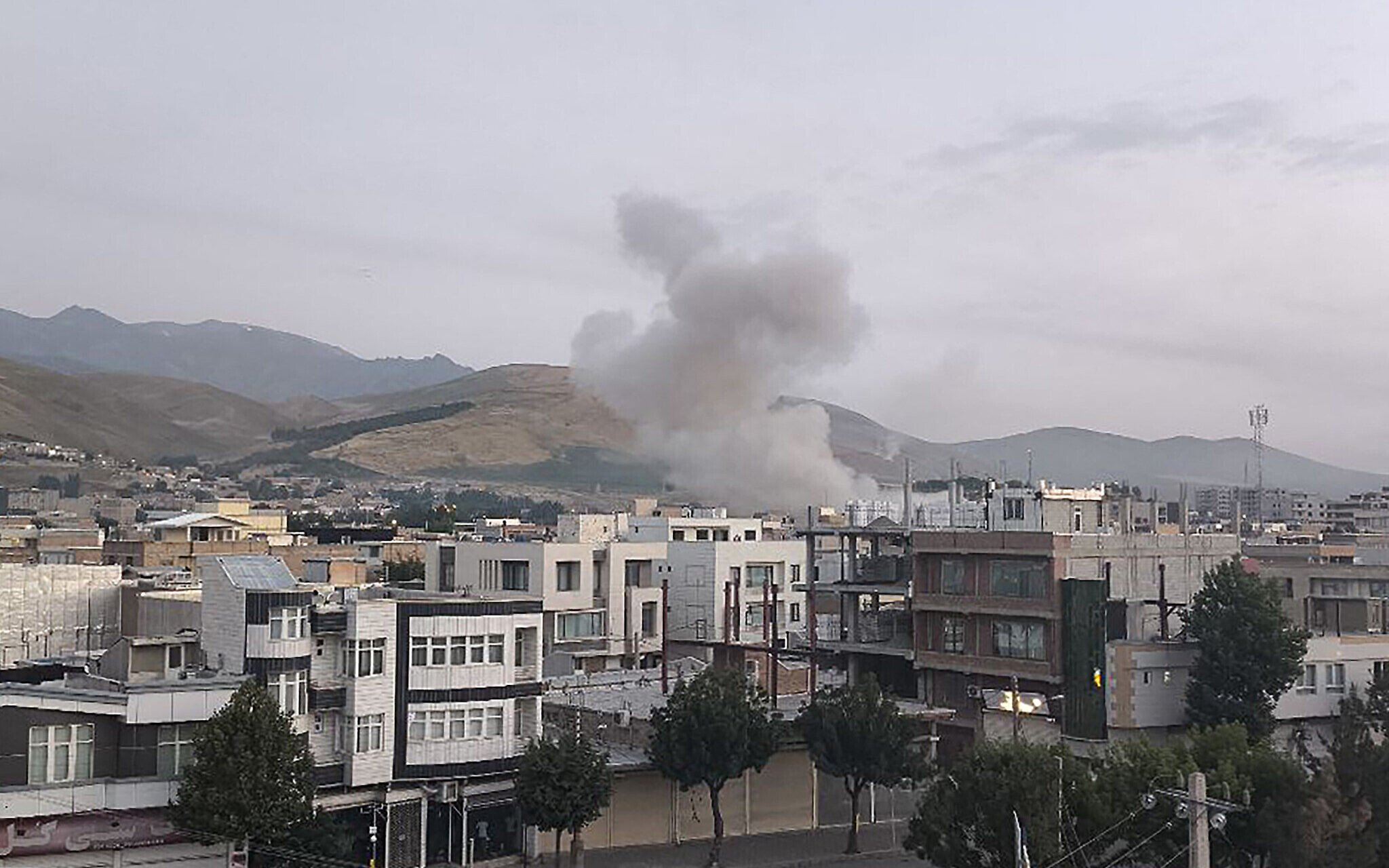
Israeli lawmakers from across the political spectrum offered broad support as the country launched preemptive strikes on Iran’s nuclear facilities overnight Thursday, amid alarm and concern from other countries who warned the action could further destabilize the region.
Israel began waves of bombings in Iran early Friday morning, with Prime Minister Benjamin Netanyahu saying the campaign, dubbed “Rising Lion,” was “to strike Iran’s nuclear infrastructure, Iran’s ballistic missile factories, and Iran’s military capabilities.”
Israeli officials offered support and urged the public to obey instructions from the IDF Home Front Command, which issued a general order that the public should remain close to bomb shelters as Israel braces for Iranian reprisals.
“I pursued my enemies and overtook them, I did not turn back till they were destroyed,” quoted President Isaac Herzog from Psalms 18:37 in a post to X. “The security forces are acting with determination and responsibility to protect Israeli citizens,” he added. “Please listen to the Home Front instructions — it saves lives.”
Opposition Leader Yair Lapid wrote that he “blesses the security forces and supports them and their action tonight to protect the security of Israel’s citizens.”
Benny Gantz, leader of the opposition National Unity party, posted a prayer recited weekly in synagogues on Saturdays for the welfare of Israeli security forces, adding at the end “we are all united against our enemies” and urging the public to obey instructions.
Finance Minister Bezalel Smotrich posted the same prayer, which is also recited by some at times when Israeli forces are known to be in immediate peril, while National Security Minister Itamar Ben Gvir simply posted three Israeli flags.
Yair Golan, leader of the opposition The Democrats party, posted “a strong people, a determined army and a home front behind them, that is how we were always victorious, and that is how we will win today.”
“The eternal people are not afraid,” wrote Avigdor Liberman, leader of the opposition Yisrael Beytenu party.
There were mixed responses from US lawmakers as the Israeli strikes began.
US Secretary of State Mark Rubio said Israel took “unilateral action against Iran” while stressing the US was not involved and warning Iran against any retaliation against the US.
“Israel has an unquestionable right to defend itself,” posted Republican Senator John Cornyn to X. “I am proud to stand with Israel.”
Democratic Sen. John Fetterman said, “Our commitment to Israel must be absolute, and I fully support this attack,” while Republican Sen. Tom Cotton said, “We back Israel to the hilt, all the way.”
However, the top Democrat on the US Senate Armed Services Committee sharply criticized Israel, accusing it of putting the region and American forces at risk.
“Israel’s alarming decision to launch airstrikes on Iran is a reckless escalation that risks igniting regional violence,” Sen. Jack Reed of Rhode Island said in a statement.
Democrat Sen. Chris Murphy said, “Israel’s attack on Iran, clearly intended to scuttle the Trump administration’s negotiations with Iran, risks a regional war that will likely be catastrophic for America and is further evidence of how little respect world powers — including our own allies — have for President Trump.”
Around the world, condemnation and concern poured in early Friday.
Riyadh, once a rival of Tehran before reconciling about two years ago, condemned the strikes.
“The Kingdom of Saudi Arabia expresses its strong condemnation and denunciation of the blatant Israeli aggressions against the brotherly Islamic Republic of Iran, which undermine its sovereignty and security and constitute a clear violation of international laws and norms,” the foreign ministry said in a statement.
Oman, which is mediating the nuclear talks between the US and Iran over the controversial nuclear program, said it “considers this act a dangerous, reckless escalation, representing a flagrant violation of the United Nations Charter, the principles of international law.
“Such aggressive, persistent behavior is unacceptable and further destabilizes the regional peace and security,” the statement continued. “The Sultanate of Oman holds Israel responsible for this escalation and its consequences, and calls upon the international community to adopt a firm and unequivocal stance to halt this dangerous course of action.”
The United Arab Emirates and Qatar also issued strong condemnations of Israel’s strikes.
British Prime Minister Keir Starmer said the strikes are concerning and that all parties need to step back and reduce tensions.
“The reports of these strikes are concerning and we urge all parties to step back and reduce tensions urgently. Escalation serves no one in the region,” he said. “Stability in the Middle East must be the priority and we are engaging partners to de-escalate. Now is the time for restraint, calm and a return to diplomacy.”
Japan “strongly” condemns Israel’s air strikes on Iran, Foreign Minister Takeshi Iwaya told reporters in Tokyo on Friday, calling for restraint from all parties.
“We strongly condemn the latest action that escalates the situation,” he said. “Peace and stability in the Middle East region are extremely important to Japan, and we urge all parties involved to exercise the utmost restraint and calm the situation.”
Foreign Minister Gideon Sa’ar engaged in a round of diplomatic calls with his ministerial peers around the world to explain Israel’s decision to strike Iran, the Foreign Ministry said in a statement.
The strikes came in the early hours of the morning local time, and among the first to offer public responses were officials in New Zealand and Australia, where day had already broken.
“Australia is alarmed by the escalation between Israel and Iran. This risks further destabilizing a region that is already volatile,” Australian Foreign Minister Penny Wong said in a statement. “We call on all parties to refrain from actions and rhetoric that will further exacerbate tensions.
“We all understand the threat that Iran’s nuclear and ballistic missile program represents to international peace and security, and we urge the parties to prioritize dialogue and diplomacy,” she said.
“It’s a really unwelcome development in the Middle East,” said New Zealand Prime Minister Christopher Luxon. “The risk of miscalculation is high. That region does not need any more military action, and the risk associated with that.”
UN chief Antonio Guterres urged Israel and Iran to “show maximum restraint” after Israel’s wave of air strikes, the secretary-general’s spokesman said in a statement late Thursday.
While broadly condemning “any military escalation in the Middle East,” the statement by Deputy Spokesperson Farhan Haq noted Guterres was “particularly concerned” by Israel’s strikes on nuclear installations amid the ongoing US-Iran negotiations.
“The secretary-general asks both sides to show maximum restraint, avoiding at all costs a descent into deeper conflict, a situation that the region can hardly afford,” it added.

